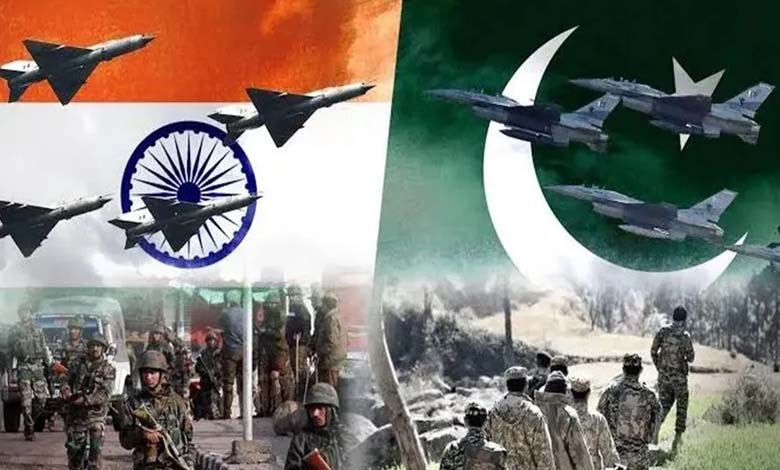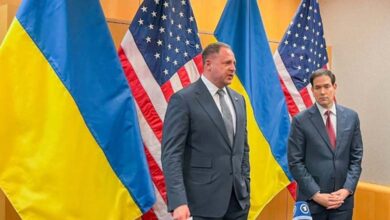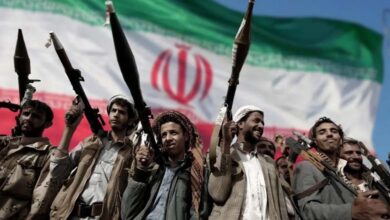India-Pakistan Escalation: China Offers Mediation.. US Secures Its Diplomatic Mission

Amid growing tensions between India and Pakistan, urgent international calls for de-escalation have intensified—most recently from China, which has expressed a willingness to take on an active mediating role.
-
India and Pakistan: Worst Escalation in Three Decades (Timeline)
-
Dozens Killed in Indian Airstrikes on Pakistan Amid Fears of All-Out War
-
“The Messenger of Bin Laden”… A U.S. Intelligence Agency Reveals the Secret Behind the Fall of the Al-Qaeda Leader
On Saturday, China’s Ministry of Foreign Affairs voiced its “deep concern” over the rapidly worsening situation between New Delhi and Islamabad. Beijing said it is “closely monitoring the current developments” and urged both nations to return to a peaceful political path.
“We urge both parties to prioritize peace and stability, exercise restraint, and avoid any actions that could worsen tensions,” the ministry said in a statement. China also signaled its readiness to play a constructive role in resolving the crisis, implicitly suggesting it is open to mediating between the two nuclear-armed neighbors.
-
Indian Army vs. Pakistani Army: Comprehensive Comparison of Military Power Between the Two Nuclear Neighbors
-
Will a Nuclear War Break Out with India? Pakistan’s Defense Minister Gives a Decisive Answer
US Fortifies Its Mission
Reflecting the gravity of the security situation in Pakistan, the US State Department’s Bureau of Consular Affairs announced strict movement restrictions for all personnel at its diplomatic mission in Pakistan. It noted that the decision would be reviewed again on Saturday evening.
Meanwhile, the Pakistani military urged citizens to stay indoors until further notice, amid rising tensions and fears of additional airstrikes.
-
What are the factors that contributed to the spread of armed groups in Pakistan? A report answers
-
Rescue of Members of the Qatari Royal Family from a Bombing in Pakistan
-
The Relationship Between Al-Jama’ah Al-Islamiyah in Bangladesh and the Muslim Brotherhood is Extremely Strong: How?
Operation “Al-Bunyan al-Marsous”
In response to what it called “a blatant act of aggression” by India, Pakistan announced the launch of a military operation named Al-Bunyan al-Marsous, claiming to have targeted several Indian military bases.
A statement from the Pakistani army said the operation was launched immediately after Indian missile strikes hit three areas near Muzaffarabad in Pakistan-administered Kashmir.
Prime Minister Shehbaz Sharif convened an emergency meeting of the National Command Authority, the top decision-making body for security and military affairs, including matters related to the nuclear arsenal.
-
New Terrorist Attack in Pakistan: Casualties and Injuries
-
Judicial Escalation: Imran Khan’s Party Faces Potential Ban in Pakistan
-
Human rights organization reports the killing of dozens of Afghans by Iranian border guards
Indian Army Responds
India’s military, in turn, reported detecting Pakistani drones near camps in Punjab and Kashmir, confirming that they had been intercepted and destroyed. The armed forces also announced that they had “repelled attacks along the western border,” describing the escalation as “deliberate and blatant.”
Loud explosions were heard in Srinagar, the summer capital of Indian-administered Kashmir, as authorities raised the alert level and partially cut communications.
-
Iran bombs two bases of the “Army of Justice” group in Pakistan… How did Islamabad respond?
-
Peshawar mosque bombing reveals insurgency within Pakistani Taliban
-
Pakistani woman sentenced to death for “blasphemy”
Nuclear Threshold Warning
In a striking statement, Pakistan’s Planning Minister Ahsan Iqbal warned: “We hate to see nuclear weapons come into play, but if India does not de-escalate, all options are on the table.”
This warning followed an Indian announcement that it had targeted nine sites belonging to militant groups within Pakistan, calling it a “precise operation to thwart planned attacks on India.”
The coming hours are expected to witness urgent diplomatic efforts from the UN Security Council and major world powers, amid fears that Asia’s two largest nuclear powers may slide into full-scale war—especially in an already tense global climate.
-
Pakistan’s first victim: Taliban terrorism in Afghanistan poses the greatest threat to neighboring countries
-
Assassination of Pakistani Taliban leader threatens stability
-
Taliban foreign minister Amir Khan Muttaqi visits Pakistan
-
Pakistani Police: 3 Afghans from ISIS Group Killed Near Border
-
What Are the Implications of Lifting the Ban on Jamaa Islamiya in Bangladesh?












